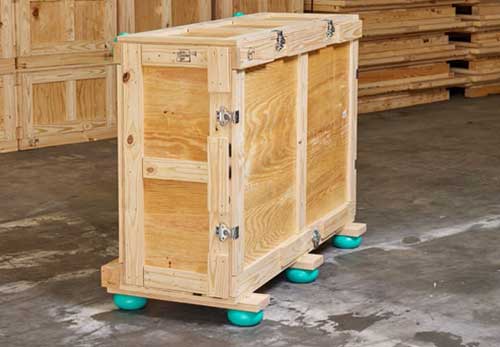Crates Manufacturer | Storage and Transport
The best wooden crates- We are crates Manufacturer and boxes
The diversity in crate manufacturing can be easily seen in the kind of crates that are made keeping specific industry needs. These include:
Wooden Crates: Widely traditional in use, wooden crates are mainly used for their strength and durability. They are often utilized to transport heavy payloads, equipment, and freight that can be exposed to international trade and requires stronger packing.
Plastic Crates: Lightweight, durable and reusable, plastic crates are commonly used in agriculture for transporting fresh produce, retail businesses for product handling and display; and logistics as they have the ability to be easily handled and stacked.
Metal Crates: These are for very heavy or particularly high-value goods that need maximum protection. Metal shipping containers are typically fabricated from steel or aluminum and custom-created for special products such as aerospace components or costly machinery.
Cardboard or Corrugated Crates: These options are affordable, light, and recyclable but used for comparatively less heavy items. These types of packaging are most commonly for electronics, household goods and other items like that needing some protection but not too much weight.

Materials Used
Crate construction material is based on crate purpose, the weight and fragility of goods to be carried, as well as sustainability.
Wood: The traditional material, wood is selected for its strength and customizability. But this has to be treated before international shipping, to avoid pest entering other Crates Manufacturer.
Plastic: High-density polyethylene (HDPE) and polypropylene (PP) are the types most used due to their durability, moisture-resistant properties, and recyclability. Plastic crates: Configuration by innovations in bioplastics are also making plastic crates more sustainable.
Metal: Steel and aluminum are high-strength, durable materials; they make heavy elements and tend to be costly compared with wood or plastic.
Cardboard: The most widespread use is corrugated board which is light, recyclable and cheap relative to other materials used for shipment of lighter items.
Crates Manufacturer and Manufacturing Process
The exact manufacturing process varies widely depending on the type of material:
Wooden crates: Wood is often cut and assembled before being finished, either in the form of custom or even standard crates It may be treated wood, for durability and pest resistance.
Plastic Crates: Made from plastic pellets melted to a liquid and shaped in the desired shape using either injection molding or thermoforming processes.
Metal Crates: Also includes cutting, bending and welding sheets and bars of metal to create crates. It usually needs tools and manpower and is more complex/expensive.
Check Out: Crates Manufacturer For Cardboard Crates Made of cut and scored sheets of corrugated cardboard. This is a highly automatable process that works well for mass production.
Sustainability Considerations
In crate manufacturing, sustainability is fast becoming a reality – Heatmap of junk food: Fruits and vegetables consumption — 2000/2019 Companies try reduce their climate footprint in the following ways:
Incorporating Recycled Materials: Sophisticated recycling allows wood, plastic or metal to be used in manufacturing while minimizing waste.
Better Re-usability: Creates that can have multiple sets of life, especially in circular logistics systems Designs that Utilize Minimal Material to Achieve a Strong Crate With Maximum Protection, Low Resource Use and Shipping Weight.
The Search for Other Materials: Looking into the benefits of sustainable materials such as bamboo, hemp or bioplastics with a low environmental footprint.
Challenges and Innovations
The challenges for the crate manufacturing industry range from balancing durability with cost to providing sustainable pallets. To overcome these challenges, advances in materials and design are coming to the rescue. For example, creating materials that are lighter and stronger will enable us to manufacture durable crates with lower resource needs. Also Read: Crates Manufacturer, With the implementation of smart technologies such as RFID tags from crates, transportation and logistics operations are receiving a boost in monitoring inventory levels.
Conclusion
The creation of crates is an incredibly important line of industry, enabling goods to travel the world in a safe way. While this industry is not static, manufacturers are constantly adjusting to the needs of their clients who want and need more sustainable packaging solutions as the industry evolves. In pursuing innovation and sustainability, crate manufacturers support not should protect goods but also the planet.

